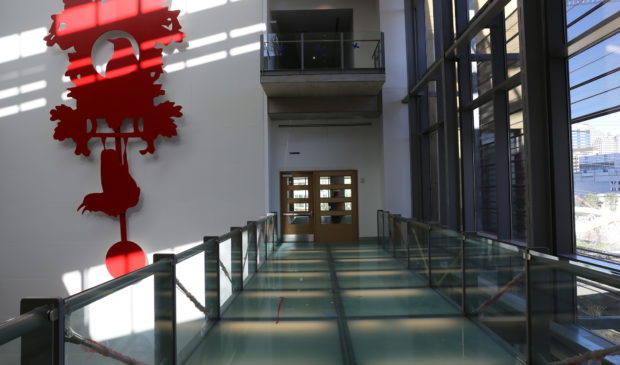Arts Commission to decide on next year’s funding, with deep cuts for all
Thursday, June 25, 2020 by
Chad Swiatecki Arts groups that have received contracts from the city’s Cultural Arts office in recent years will likely see significant decreases next year, with some groups in line to lose more than half of the funding they received in their most recent contracts.
The Arts Commission will vote Friday on a revised funding matrix for the next round of contracts, which is complicated by decreased Hotel Occupancy Tax funds due to the Covid-19 pandemic and the ongoing plans to revise the judging process for contracts.
Next year’s funding for cultural arts contracts is expected to drop to $7.2 million from the most recent $12.8 million that was budgeted long before the pandemic crippled the local hotel industry. The city will make good on current contracts through the end of this budget year, but the sharp decrease in hotel taxes means awards will be far less next year, and that a focus on addressing longstanding equity concerns means some groups will likely shoulder far larger reductions than groups aligned with minority communities along racial, gender or disability considerations.
The working group charged with setting next year’s guidelines presented a final suggestion Wednesday that would have general contractors’ funding reduced by 58 percent; LGBTQ and disability-focused contractors getting a 48 percent cut; Asian, Latino, African, and Native American recipients getting a 30 percent cut; and Black arts contractors getting a 10 percent cut.
Chair Jaime Castillo said the ongoing work with a Dallas consulting group to rework the entire application and award process for contracts led to the decision to make next year a “bridge year” that would’ve largely kept existing funding levels and ratios in place. The funding hit from the pandemic has made that plan almost impossible to carry out.
“When we went into contract with MJR we were racing against the clock with new guidelines. At the end of last year we realized that we needed more time and needed to process the information we were gathering from the community, and we all agreed that we would introduce this bridge year to give the review process more time to come up with holistic guidelines that would address racial equity and a path forward,” he said.
“Of course on top of that we’re now dealing with a pandemic that has shut down our ability to meet in groups. We’re looking at one year and funding that still is not certain because we don’t know what those numbers are going to be when they come in.”
The working group and city staff considered more than 100 funding scenarios that adjusted cuts of different levels to different groups, with equity a priority along with attempting to reduce the impact felt by newer and smaller contractors or groups.
Commissioner Bears Rebecca Fonte said she felt the bridge year approach was ill-advised from the start, and that she will only support a funding matrix with no cuts for Black contractors.
“We’re now set in this thing where people feel they have this amount of money they were getting that was set in stone and we’re taking a percentage of money off of the amount they got last year, which was based on the amount they got the year before that. There’s a sort of ‘this money is expected’ mentality that goes with that, that I think the pandemic is making especially hard,” she said. “If there was ever a year to burn it all down and start from scratch I would feel like this is the year.”
The commission may work ahead of Friday’s meeting to further revise the working group’s suggested matrix, though Commissioner Lulu Flores said there will be no way to keep arts groups and contractors from facing painful reductions in funding. The commission’s decision is due Friday so it can be prepared for the start of the city’s budget work next month.
“We tried to turn over every rock we could to try to find other funds,” she said. “This was really hard and you hate to see any reductions to these groups, but unfortunately the reality is that these are the funds that we have to work with and we did the best we could to be as fair and equitable to do the least amount of harm.”
The Austin Monitor’s work is made possible by donations from the community. Though our reporting covers donors from time to time, we are careful to keep business and editorial efforts separate while maintaining transparency. A complete list of donors is available here, and our code of ethics is explained here.
You're a community leader
And we’re honored you look to us for serious, in-depth news. You know a strong community needs local and dedicated watchdog reporting. We’re here for you and that won’t change. Now will you take the powerful next step and support our nonprofit news organization?



